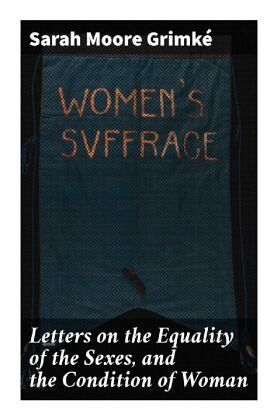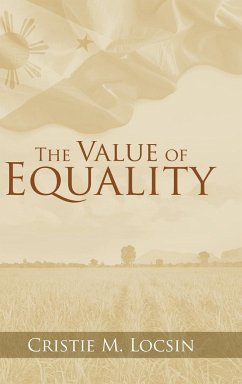
Letters on the Equality of the Sexes, and the Condition of Woman
Versandkostenfrei!
Versandfertig in 6-10 Tagen
7,49 €
inkl. MwSt.
Weitere Ausgaben:

PAYBACK Punkte
4 °P sammeln!
In "Letters on the Equality of the Sexes, and the Condition of Woman," Sarah Moore Grimké presents a groundbreaking discourse on gender equality, integrating personal reflections with a rigorous critique of the male-dominated society of the 19th century. Written in the epistolary form, the work combines philosophical arguments with emotive language, making it both an accessible and compelling read. Grimké's exploration of women's rights intersects with the abolitionist movement, showcasing the intertwined nature of oppression faced by both enslaved individuals and women, thereby situating he...
In "Letters on the Equality of the Sexes, and the Condition of Woman," Sarah Moore Grimké presents a groundbreaking discourse on gender equality, integrating personal reflections with a rigorous critique of the male-dominated society of the 19th century. Written in the epistolary form, the work combines philosophical arguments with emotive language, making it both an accessible and compelling read. Grimké's exploration of women's rights intersects with the abolitionist movement, showcasing the intertwined nature of oppression faced by both enslaved individuals and women, thereby situating her work within the broader context of social reform in antebellum America. Sarah Moore Grimké, a prominent abolitionist and suffragist, drew from her own experiences as a woman in a patriarchal society to craft this seminal text. Raised in a Southern slaveholding family, Grimké's moral convictions led her to reject the status quo. Her life as a Quaker and her active engagement in social justiceissues heavily influenced her views, providing her with the moral authority to challenge prevailing gender norms and advocate for women's rights. "Letters on the Equality of the Sexes, and the Condition of Woman" is an indispensable read for those interested in feminist literature, social justice, and the historical intersection of gender and race. Grimké's eloquence and revolutionary ideas continue to resonate, making this work a vital addition to any scholarly discourse on equality and human rights.













